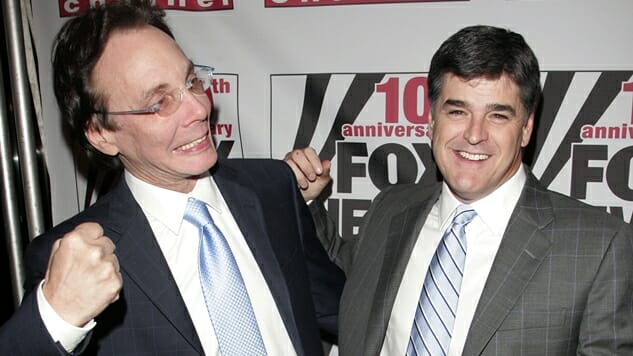The world of political commentary received unfortunate news last Thursday with the passing of Fox News personality, Alan Colmes. By all accounts from those who knew him, he was a kind and generous man with an amazing sense of humor—a description that shouldn’t surprise anyone who’d watched or listened to his on-air work over the years.
It didn’t take long for condolences to pour in that morning from friends and former colleagues on social media.
Megyn Kelly tweeted that she was “heartbroken,” describing Mr. Colmes as “an incredibly positive force” who lit up the FNC halls with his personality.
Fox News reporter James Rosen tweeted, “Alan Colmes was a bright, funny, and gracious man who compiled a substantial and valuable body of work as a broadcaster and interviewer. RIP.”
“Alan was a dear friend,” tweeted Sean Hannity. “I miss him dearly. Please pray for my friend and his family!”
Hannity, of course, co-hosted a longtime political commentary show with Colmes on the Fox News network, from which both men gained national prominence. Modeled after CNN’s Crossfire, Hannity & Colmes (1996-2009) provided viewers with a nightly dose of partisan pugilism. Hannity was the self-proclaimed Reagan conservative and Colmes was the bleeding-heart liberal.
The show’s exchanges were fast-paced, entertaining, and often fiery, with featured guests—from across the political spectrum—sometimes engaging in shouting matches. But as fellow commentator Monica Crowley (Colmes’s sister-in-law) described in a Facebook post Thursday morning, Alan had a way of neutralizing the fervor:
“During the most heated political debates, his infectious sense of humor would come through, and before you knew it, even his staunchest political opponents were smiling.”
Colmes was indeed a happy warrior and remarkably good sport, never seeming to take even blatantly personal shots personally.
Though the show focused on politics, Hannity & Colmes also took on cultural stories, including some on the lighthearted side. It was in those segments that it became clear to viewers just how much the two hosts respected each other, and truly enjoyed each other’s company.
The pairing of Sean Hannity and Alan Colmes was a good one, not only because it demonstrated that friendship and mutual admiration could exist across deep political divides, but because the partnership brought some balance to both men’s commentary. Whenever one of them would stroll too far into unhinged wing-nut territory, the other had a way of reining them back in toward the middle, and compelling them to amicably concede some points that otherwise would have gone unchallenged.
Such comradery is deeply missed in today’s political discourse, especially on cable news, where voices from both sides are far more intent on talking over each other than learning from one another.
The successful television partnership ended in January 2009, when Colmes left the show and Sean Hannity took over the time-slot with his own program. Gone was the balance and much of the charm, but the ratings rose sharply because Hannity harnessed the partisan outrage surrounding the election of Barack Obama and his decidedly liberal agenda.
Hannity shaped his show into a red-meat delivery system for the embittered Republican base, and though the effort was a professional success, the commentary suffered. Over time, Hannity grew increasingly petty, snide, and dismissive of his outnumbered liberal guests. The presentation ultimately resembled that of Keith Olbermann’s MSNBC program during the Bush years. Thoughtful analysis was replaced with political hatchet work, and the rest was history.
Today, when you turn on Hannity, you’d be hard pressed to find a trace of the man who used to trade barbs with Alan Colmes in good-natured debate. Instead, you’ll see pure political tribalism in the form of Trump sycophantism—unchecked, unprincipled, and devoid of intellectual consistency.
It’s unfortunate, but it’s also a sign of the times in a media-outrage industry that draws its energy from people’s factional instincts and a diluted understanding of our country’s constitutional separation of powers. Hannity’s hardly the only guilty party.
The breakup of Hannity and Colmes was by no means a catalyst for where we now find ourselves in American politics or even our cable news culture. That would be a silly assertion. But the passing of Alan Colmes does serve as a reminder that our partisan discourse, not so long ago, was much smarter, friendlier, and classier than it is now.
In an era defined by the counter-punch, the world of political commentary could use more people like Alan Colmes who mastered the art of rolling with the punches, and doing so with a disarming smile on his face. His demeanor will be missed, and so will he.
